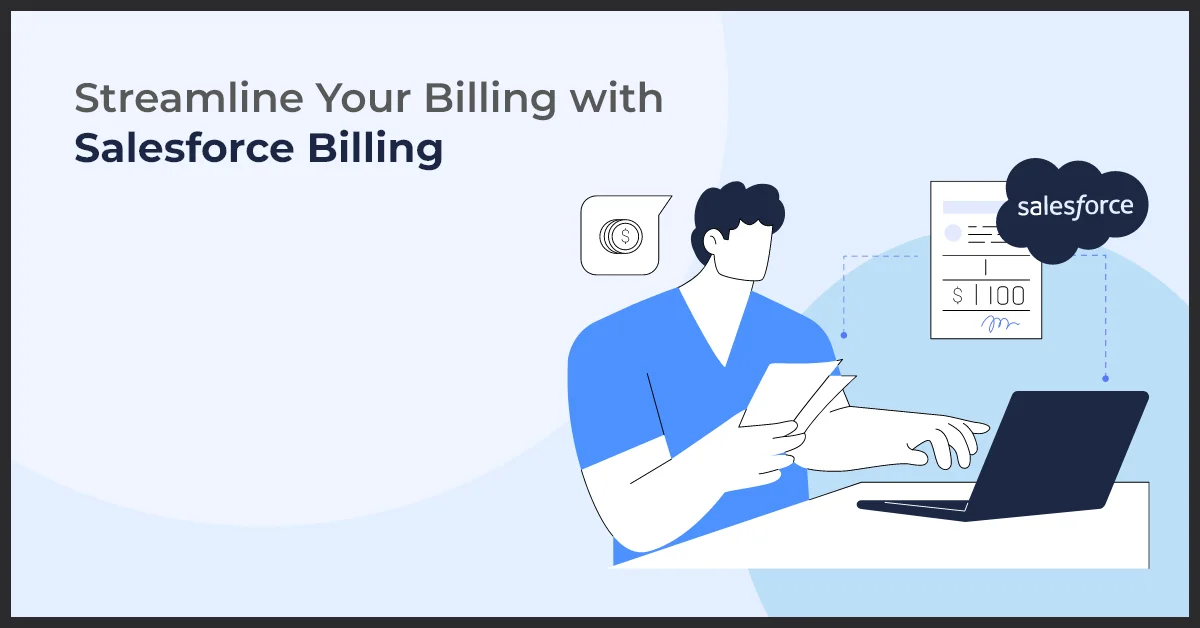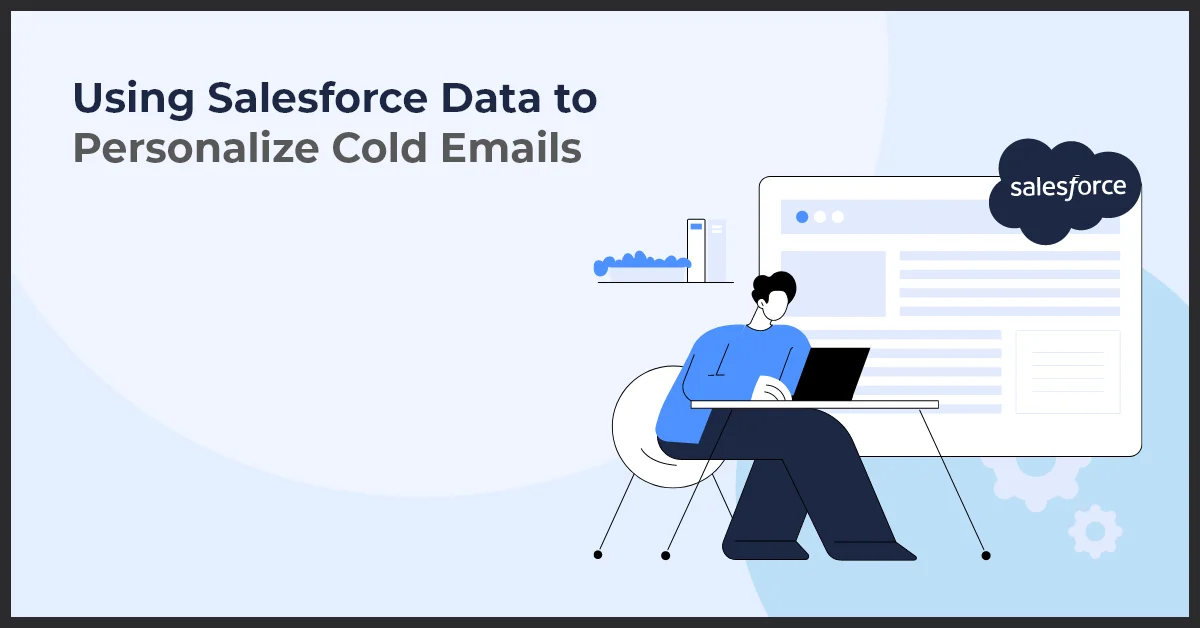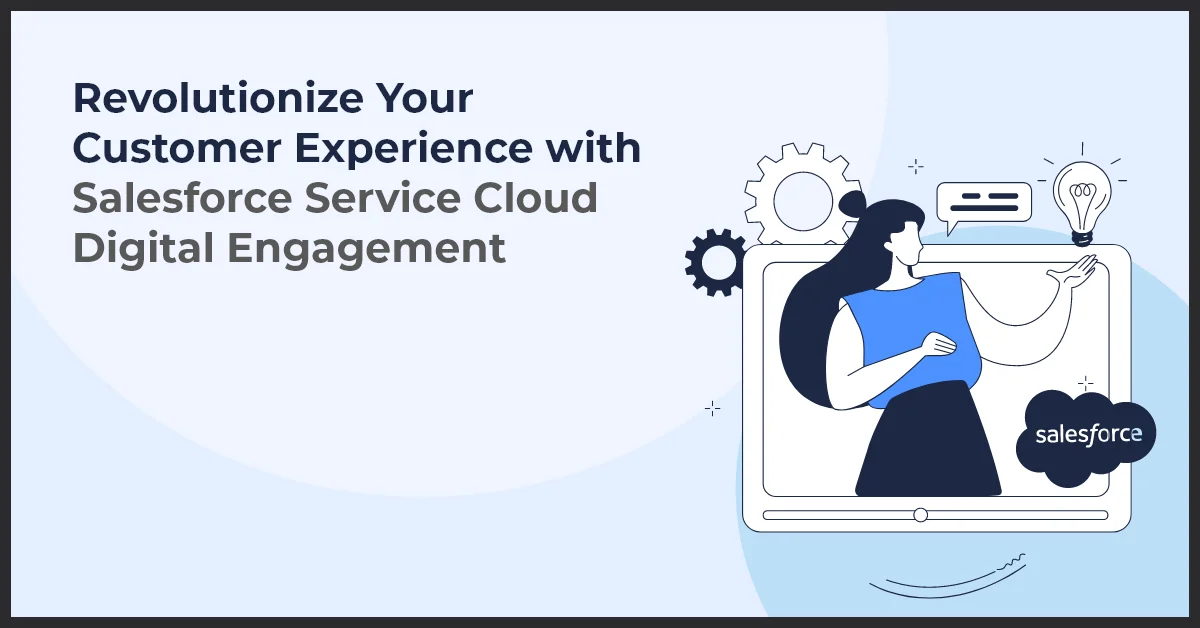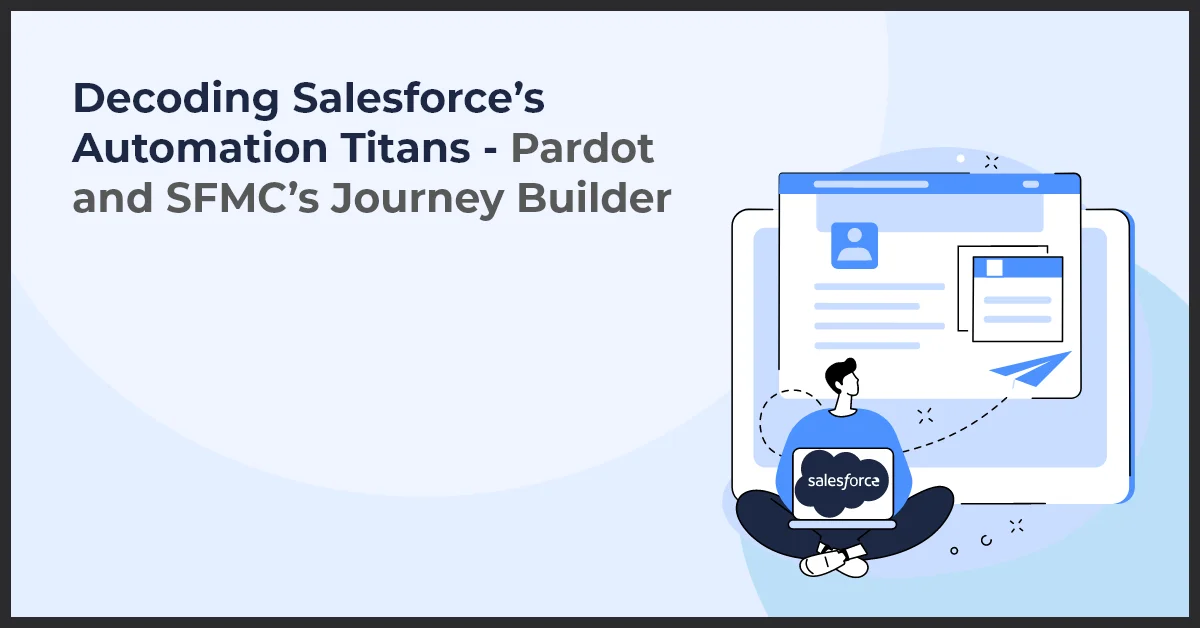Streamline Your Billing with Salesforce Billing

Published on: October 28, 2023
Updated on: March 21, 2024
994 Views
- Salesforce
11 min read
Are you looking for a comprehensive solution to manage your billing processes? Look no further than Salesforce Billing. As a leading CRM platform, Salesforce offers an array of powerful tools to help businesses streamline their operations. With Salesforce Billing, you can efficiently manage your billing processes, ensuring accurate and timely payments from your clients.
Salesforce is widely recognized as one of the top customer relationship management (CRM) platforms in the market. It provides businesses with the necessary tools and features to effectively manage their sales, marketing, and customer service processes. With its intuitive interface and robust functionality, Salesforce offers a seamless experience for businesses of all sizes.
Salesforce Billing is a comprehensive solution specifically designed to handle billing management. It allows businesses to automate their billing processes, including invoice generation, payment collection, and revenue tracking. With Salesforce Billing, you can easily create custom billing plans, set up recurring invoices, and provide your clients with a smooth payment experience.
Effective billing management is crucial for the success of any business. By efficiently managing your billing processes, you can ensure timely payments from your clients, minimize payment delays, and improve your cash flow. Salesforce Billing provides businesses with the necessary tools to automate and streamline billing operations, reducing manual errors and saving valuable time and resources.
Don't let billing management become a hassle for your business. Discover the power of Salesforce Billing and simplify your billing processes today. Streamline your operations, improve customer satisfaction, and boost your bottom line with this innovative billing management solution.
Service Offerings and Features of Salesforce Billing
Overview of the key service offerings provided by Salesforce Billing
Salesforce Billing offers a wide range of service offerings that help businesses streamline their billing processes and enhance revenue management. With Salesforce Billing, businesses can enjoy:
- Billing Processes: Simplify and automate your billing processes, ensuring accuracy and efficiency.
- Subscription Management: Effectively manage subscriptions, including renewals, upgrades, and cancellations.
- Revenue Management: Gain insights into revenue streams and optimize revenue recognition.
- Pricing and Discounting: Set up flexible pricing models and apply discounts efficiently.
- Payment Processing: Seamlessly process payments and handle various payment methods.
- Tax Management: Automate tax calculations and compliance, reducing errors and risks.
- Revenue Analytics: Access powerful analytics and reporting capabilities to monitor revenue performance.
- Integration with Other Systems: Integrate Salesforce Billing with other systems for seamless data flow.
- Contract Management: Efficiently manage contracts and agreements with customers.
- Customer Support: Provide exceptional customer support with self-service portals and case management.
Description of the features and capabilities of Salesforce Billing
Salesforce Billing offers numerous features and capabilities that empower businesses in managing their billing operations effectively:
- Flexible Billing Models: Salesforce Billing supports various billing models, allowing businesses to choose the one that suits their needs, such as one-time payments, recurring billing, usage-based billing, and more.
- Automated Invoicing: Generate accurate and professional-looking invoices automatically, saving time and reducing manual errors.
- Advanced Revenue Recognition: Ensure compliance with revenue recognition standards and automate revenue allocation and reporting.
- Dynamic Pricing: Create and manage pricing rules to accommodate complex pricing structures and discounts.
- Secure Payment Processing: Safely process payments from multiple channels and provide customers with convenient payment options.
- Integrated Tax Calculation: Automate tax calculations using real-time tax rates and rules, reducing complexity and ensuring accuracy.
- Comprehensive Analytics: Gain deeper insights into revenue performance, track key metrics, and make data-driven business decisions.
- Seamless Integration: Integrate Salesforce Billing with other Salesforce clouds and external systems for smooth data synchronization and workflow automation.
- Efficient Contract Management: Store and manage customer contracts, track contract terms, and automate contract renewal processes.
- Robust Customer Support: Empower customers with self-service portals, enable case management for efficient issue resolution, and deliver personalized support.
Benefits of Salesforce Billing for Businesses
Implementing Salesforce Billing provides numerous advantages and benefits for businesses. Let's explore some of the key ones:
Improved billing accuracy and efficiency
With Salesforce Billing, businesses can automate and streamline their billing processes, reducing human error and ensuring accurate and timely invoices.
Streamlined subscription management and revenue recognition
Salesforce Billing offers robust subscription management capabilities, making it easier for businesses to handle recurring revenue and recognize it in a timely and accurate manner.
Enhanced revenue forecasting and reporting capabilities
Businesses can leverage Salesforce Billing's advanced reporting and analytics features to gain valuable insights into their revenue patterns and make data-driven forecasts for improved decision-making.
Simplified pricing and discounting strategies
With Salesforce Billing, businesses can easily configure and manage complex pricing structures and discounting strategies, ensuring a seamless and consistent experience for customers.
Secure and seamless payment processing
Salesforce Billing integrates with leading payment gateways, providing businesses with secure and seamless payment processing options, ensuring customer data protection and a smooth payment experience.
Effective tax management and compliance
Businesses can ensure tax compliance and effortlessly manage tax-related processes with Salesforce Billing's built-in tax management capabilities.
Data integration for process automation
Salesforce Billing seamlessly integrates with other Salesforce products and third-party systems, enabling businesses to automate processes and eliminate manual data entry, improving overall operational efficiency.
Efficient contract management
Salesforce Billing offers robust contract management features, simplifying the creation, tracking, and management of contracts, ensuring transparency and compliance throughout the contract lifecycle.
Enhanced customer support and issue resolution
By leveraging Salesforce's comprehensive customer support tools and technologies, businesses can provide timely and effective support to their customers, ensuring high levels of customer satisfaction and issue resolution.
Sales and Revenue Optimization with Salesforce Billing
When it comes to optimizing sales and revenue processes, Salesforce Billing is an invaluable tool for businesses. With its array of features and capabilities, it enables companies to streamline their operations and maximize their profitability.
How Salesforce Billing enables businesses to optimize their sales and revenue processes
Salesforce Billing provides businesses with a centralized platform for managing their sales and revenue processes. With its intuitive interface and robust functionality, it makes it easier than ever to track and analyze sales data, identify trends, and make informed decisions.
One of the key ways Salesforce Billing helps optimize sales and revenue processes is through its effective pricing strategies. By leveraging the platform's advanced pricing features, businesses can set up dynamic pricing models, apply discounts and promotions, and optimize pricing based on customer behavior and market conditions.
Another crucial aspect of optimizing sales and revenue is the ability to utilize advanced revenue analytics and reporting features. Salesforce Billing offers powerful analytics tools that allow businesses to gain deep insights into their revenue streams, identify areas of improvement, and make data-driven decisions to boost sales and profitability.
Integration is another key aspect of sales and revenue optimization, and Salesforce Billing excels in this area. The platform seamlessly integrates with other systems, such as CRM and ERP software, enabling businesses to have a unified view of their sales management and streamline operations across departments.
Efficiency is crucial when it comes to delivering exceptional customer experience, and Salesforce Billing helps businesses achieve this through efficient billing and support processes. With automated billing and invoicing, businesses can minimize errors and delays, while also providing customers with a smooth and hassle-free experience.
Overall, Salesforce Billing plays a vital role in optimizing sales and revenue processes for businesses. From effective pricing strategies to advanced analytics and seamless integration, it provides the tools and capabilities necessary to drive sales growth and maximize profitability.
Step-by-Step Guide for Implementing Salesforce Billing
Detailed instructions for implementing Salesforce Billing in a business environment:
- Planning the implementation process:
- Identify the goals and objectives of implementing Salesforce Billing
- Assess the current billing system and identify pain points
- Gather requirements from key stakeholders
- Create a timeline and allocate resources for the implementation
- Setting up billing processes and automating workflows:
- Create and configure billing rules and templates
- Set up invoice generation and delivery processes
- Automate billing notifications and reminders
- Establish automated processes for revenue recognition and collections
- Managing subscriptions and contracts:
- Configure subscription management settings
- Create subscription plans and pricing models
- Set up contract management and renewal processes
- Automate contract amendments and cancellations
- Configuring pricing and discounting strategies:
- Define pricing tiers and models
- Create product catalogs and price books
- Configure dynamic pricing rules and discounts
- Implement promotions and discounting strategies
- Integrating payment gateways and ensuring secure transactions:
- Integrate payment gateways with Salesforce Billing
- Set up secure payment processing and encryption
- Implement fraud detection and prevention measures
- Ensure compliance with payment industry regulations
- Implementing tax management and compliance:
- Configure tax rules and rates
- Automate tax calculations and invoicing
- Ensure compliance with local and international tax regulations
- Generate tax reports and documentation for audits
- Leveraging revenue analytics for insights and decision-making:
- Set up revenue analytics and reporting dashboards
- Analyze billing data to identify trends and patterns
- Generate insights for revenue optimization and forecasting
- Make data-driven decisions to improve billing efficiency
Best Practices for Effective Salesforce Billing Management
Managing Salesforce Billing effectively is crucial for optimizing revenue and ensuring accurate and efficient billing processes. Here are some key recommendations and best practices:
Ensuring accurate and efficient billing processes
- Regularly audit and review billing processes to identify any inaccuracies or areas of improvement.
- Implement automated billing systems to minimize errors and streamline the billing process.
- Ensure that all billing information is updated and accurate in the system.
Optimizing subscription management and revenue recognition
- Implement a robust subscription management system to efficiently handle customer subscriptions.
- Automate revenue recognition processes to ensure timely and accurate revenue reporting.
- Regularly analyze subscription data and identify opportunities for upselling and cross-selling.
Implementing effective pricing and discounting strategies
- Analyze market trends and competitor pricing to determine optimal pricing strategies.
- Implement dynamic pricing models to personalize pricing based on customer behavior and preferences.
- Offer targeted discounts and promotions to incentivize customer loyalty and drive sales.
Streamlining payment processing and ensuring secure transactions
- Integrate secure payment gateways to facilitate smooth and secure payment transactions.
- Implement fraud detection and prevention measures to protect customer data and prevent unauthorized transactions.
- Regularly update and comply with Payment Card Industry Data Security Standard (PCI DSS) requirements.
Compliance with tax regulations and managing tax rates
- Stay up-to-date with tax regulations and ensure compliance with local and international tax laws.
- Implement automated tax calculation and management systems to accurately calculate and apply tax rates.
- Regularly review and update tax rates to reflect changes in regulations.
Leveraging revenue analytics for data-driven decision-making
- Utilize revenue analytics tools to gain insights into billing and revenue data.
- Analyze key performance indicators (KPIs) to identify trends, patterns, and areas for improvement.
- Make data-driven decisions based on revenue analytics to optimize billing processes and maximize profitability.
Seamless integration with other systems for process automation
- Integrate Salesforce Billing with other systems such as CRM and ERP for seamless data flow and process automation.
- Automate workflows and eliminate manual data entry to enhance efficiency and reduce errors.
- Ensure proper data synchronization between systems to maintain data integrity.
Efficient contract management and compliance with terms
- Implement a robust contract management system to effectively manage contracts and agreements.
- Ensure compliance with contract terms, including billing cycles, pricing, and payment terms.
- Regularly review contract terms and update as necessary.
Enhancing customer support processes and resolving billing inquiries
- Provide comprehensive training to customer support teams on Salesforce Billing features and functionalities.
- Establish clear communication channels for customers to resolve billing inquiries and receive timely support.
- Implement a ticketing system to track and resolve billing-related issues efficiently.
Conclusion and Future Trends in Salesforce Billing
Looking towards the future of Salesforce Billing, it is essential for businesses to stay updated with the latest features and advancements in the field. As technology evolves, so do the capabilities of Salesforce Billing. By staying abreast of the newest trends, businesses can continue to optimize their billing processes and enhance revenue generation.
Implementation of artificial intelligence (AI) and machine learning (ML) algorithms within Salesforce Billing is one such future trend. This integration will enable businesses to automate and streamline their billing processes further. AI-powered billing systems can analyze customer behavior and payment patterns to optimize invoicing and collections.
Another significant future trend is the expansion of Salesforce Billing's capabilities to support subscription-based and usage-based billing models. As businesses diversify their product and service offerings, Salesforce Billing will adapt to provide the necessary flexibility in managing complex billing structures.
Overall, Salesforce Billing is a powerful tool for businesses of all sizes. By leveraging its features and staying informed of the future trends in billing management, businesses can achieve higher levels of efficiency, improve customer satisfaction, and drive revenue growth.



